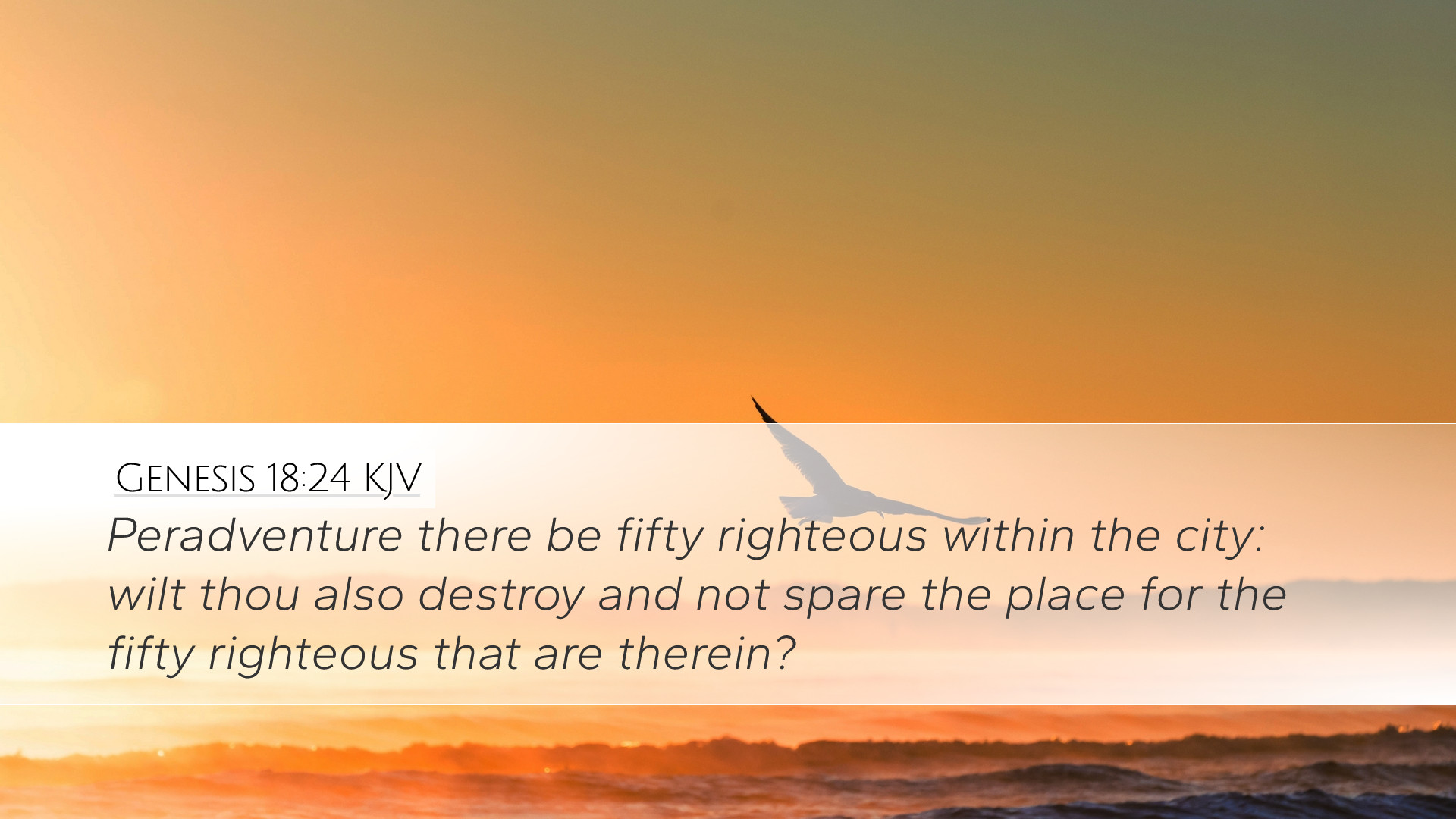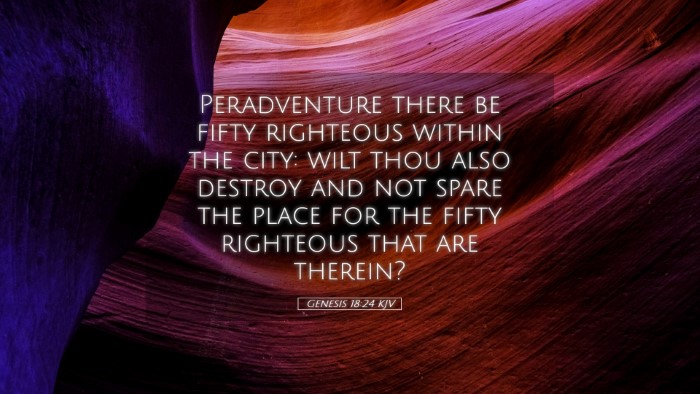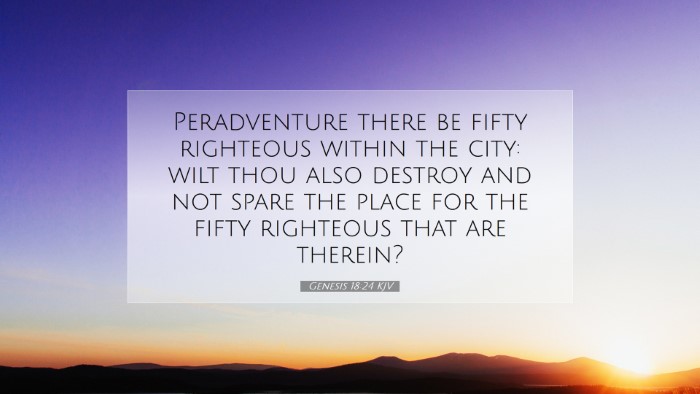Commentary on Genesis 18:24
Verse Context: Genesis 18:24 reads, "Peradventure there be fifty righteous within the city: wilt thou also destroy and not spare the place for the fifty righteous that are therein?" This verse forms part of the narrative of Abraham's intercession on behalf of Sodom, which raises profound theological and ethical questions regarding justice, mercy, and the nature of God.
Overview of the Passage
This passage captures a moment of profound engagement between Abraham and God, illustrating the theme of intercessory prayer. Abraham, recognizing the imminent judgment upon Sodom, seeks to understand and perhaps mitigate the Lord’s impending decision. This dialogue highlights two pivotal aspects: humanity's advocacy for the righteous and God's righteous judgment.
The Character and Nature of God
1. God's Justice: As Matthew Henry notes, God's justice is an essential aspect of His character. The inquiry about the fifty righteous in Sodom indicates that divine justice cannot overlook sin, yet it raises the question of collective punishment versus individual righteousness. Abraham’s plea signifies an understanding that the presence of the righteous could alter God's judgment, reflecting the nature of God's mercy and compassion.
2. God's Mercy: Adam Clarke elaborates on God's mercy, suggesting that this dialogue illustrates God’s willingness to engage with humanity and be swayed by the righteousness of His people. The request for the preservation of the city for the sake of the righteous underscores the idea that intercession has the potential to influence divine action, encouraging believers to pray for the lost and the wicked.
The Role of Intercession
1. Abraham as Intercessor: Abraham’s role as an intercessor is pivotal. Albert Barnes stresses that this illustrates the importance of prayer and advocacy in the believer's life. Abraham stands as a model for pastors and theologians, demonstrating that prayer can confront injustice and plead for mercy.
2. Lessons for Believers: The faithful's ability to intercede for others is a powerful theme throughout scripture. Pastors may derive from Abraham's plea the principle that intercessory prayer is not only a privilege but a duty. This act signifies hope and active engagement in the spiritual warfare that surrounds us.
The Righteous and the Wicked
1. The Concept of Righteousness: The inquiry into the number of righteous reflects a broader theological understanding of 'righteousness' in the Biblical sense. Henry sheds light on how the presence of a few righteous individuals can bear significant weight in divine judgment. This notion is not just applicable to Sodom but resonates through historical and contemporary contexts.
2. Collective vs. Individual Punishment: The dialogue exemplifies the tension between collective sin and individual culpability; God’s readiness to spare the city for a certain number challenges the reader to contemplate the fate of nations and communities in relation to the righteousness of their inhabitants. Such examinations are crucial for contemporary theologians and scholars studying divine justice.
Theological Implications
1. God’s Relational Nature: This passage presents God not solely as a judge but as a relational being who listens to the concerns of His followers. Clarke emphasizes that the back-and-forth discussion serves to demonstrate God's openness to dialogue, a theme prevalent throughout scripture that should be a source of comfort for modern believers.
2. The Importance of Righteousness: The conversation implies a challenge laid upon the faithful to live righteously, knowing that their lives can affect the fate of many. Understanding this truth compels ministers to exhort their congregations towards holiness, knowing that their righteousness may act as a preservative against impending judgment.
Conclusion
Genesis 18:24 invites deep contemplation on several critical theological themes: the balance of justice and mercy, the power of intercession, and the implications of collective sin. For scholars and students alike, this passage motivates a thorough exploration of God's character while underscoring the vital role of personal righteousness in affecting the broader community. As we reflect on Abraham’s boldness in interceding, we are reminded that God invites us into relationship, allowing our prayers to embody the hope of redemptive change. The inquiry into the fifty righteous encapsulates much of God's heart — a relentless pursuit of justice tempered by mercy, prompting believers to both advocate for others and seek a life pleasing to Him.


